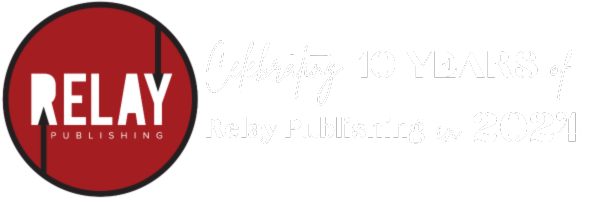There’s no magic formula that will tell you how to make money as a writer, and when you’re staring hungrily at the industry from the outside looking in, it can feel impossible to get paid to write. You yearn for that perfect coincidental meeting with an agent, or the template that will help you write an impeccable and compelling cover letter, or the single creative tutor or group that will hone your prose and take your writing and career to the next level, giving you the jumpstart you feel you need.
The truth is, while these things can be useful, relying on them undermines the power and potential that you already possess as a creative and a businessperson (because making a living in this writing world requires a little bit of both!). Put differently, your success and earnings start and end with you – everything else is just a combination of circumstances and timing.
If you want to become a professional writer, you’re in luck: we’ve compiled a list of nine things you can do today, to get your foot in the door and launch a successful writing career – without having to resort to working for content mills!
How do I know this? Because I’m speaking from personal experience. You see, when I graduated from my master’s programme in early 2020, the global Covid19 pandemic was in full swing, meaning that the kind of entry level jobs for which I’d normally have been qualified – administration, tutoring, hospitality, and local tourism – simply weren’t hiring. Businesses were feeling the sting of long stretches of lockdowns and furloughed staff, and with no end in sight, they certainly weren’t looking to take on anybody new. The few positions that were open were so saturated with eager and qualified applicants, just like me, that I found myself looking down the barrel of rejection after rejection.
I’d always burned to be a freelance writer, but social pressure led me to look for ‘safer’ and more traditional work to tide me over after finishing my education. When that fallback option was taken away from me, I finally decided to put my years of practice writing stories, and many thousands of words scribbled in notebooks, to good use.
It’s the best thing I ever did. Now I work as a full-time freelance writer from the comfort of my own home, and I’ve never looked back.
You, too, can make money as a writer – and you can start by taking one or more of the actionable steps below.
Submit work to magazines

Magazines are a great place to begin your writing career, because of the immense variety of work they offer. If you write short fiction, there are countless print and online magazines that publish all lengths, from flash fiction of 50 words, to novellas of 20,000 words, in every conceivable genre. Fiction markets usually have designated ‘reading’ periods in which they open their submissions to willing writers; usually, this means sending a full and edited draft of your story (or stories, since sometimes flash fiction markets ask for clusters of three or five flash pieces), as well as a few lines about yourself and your publishing history.
But if you don’t have any previous publications to your name, don’t worry – many magazines and presses are more concerned with the quality of the work in front of them than your background, which makes them very accessible for beginners as long as your writing is strong.
The non-fiction markets to which you’re pitching tend to want to know a little more about you, to be sure that you’re qualified to write confidently and competently about your chosen topic. For example, if you want to write about diminishing biodiversity in the oceans, do you have a background in science, or marine biology? This is usually outlined in a brief cover letter, or in your pitch itself.
A pitch is a short paragraph, generally 50-300 words in length, explaining the key thesis, or argument, of your suggested article, and the evidence you would use to prove this. You don’t need to go into too much detail at the pitching stage – you just need to demonstrate that you can back up your claims or opinion. You’ll conclude with why you are the ideal person to write the piece in a unique, compelling, and marketable way. It’s half descriptive, half “selling” yourself and your idea to the magazine.
Magazine publications are a great way to build up a professional and polished portfolio, as magazines have editors, graphic designers, typesetters, and sometimes photographers or illustrators ready and waiting to help your writing shine. Magazines tend to pay a flat rate per piece, which can vary from roughly $30 to $300, depending on the length, amount of research or interviews required, and budget of the publication.
Alternatively, you may be paid per word for your finished piece. A standard magazine rate can vary from around 5c to 15c per word, depending on your experience and the market’s submission guidelines. Be sure to thoroughly research any magazine you submit to, and familiarise yourself with its content and style, to give your submission a fighting chance. Good luck!
Freelance blog writer
As a Freelance Blog Writer, you’ll pitch existing blogs in much the same way you’d pitch to non-fiction magazines and journals, though usually the tone is a little more informal. The beauty of being a guest or freelance contributor to a blog that already has a strong and steady following is that your work will get a lot of eyes on it, and fast, without you having to do the work of building the audience yourself, or paying for unique web domains or people to do your coding or design work (if, like me, you’re more creative than tech-savvy!).
You can go about doing this several ways, one of which is to advertise yourself as a professional writer through sites like Upwork, Fiverr, and Freelancer, and get paid to write articles and blogs for a captive audience that’s already invested in your subject matter. An advantage of this kind of work is that it allows you to earn money by writing, without the responsibility of maintaining a regular blog and sourcing or writing the content yourself on a recurring schedule: you can be flexible, and dip in and out of posts and projects that interest you, while benefitting from the blog’s following.
Be sure to follow the advice and guidance of the blog’s main host, and remember that you are contributing to their project and vision, not the other way around: in other words, be yourself, and write in your natural voice. Remember that as a freelance blog writer, you’re often a combination of a service-provider and a guest, so be sure to keep your reputation clean by following requests, meeting deadlines, and having good overall “netiquette”.
Alternatively, you can…
Create your own blog and monetise it
If you want the fun and stimulation of blogging without having to follow a host’s or client’s guidelines regarding content and style, there’s nothing to stop you from being able to make money writing online by creating and monetising your own blog. The beauty of doing so is that the blog would not only allow you to earn money while writing, it would also give you the freedom and the platform to write about whatever you’d like. You can monetise your blog through marketing tools like AdSpace, or you could sign up to platforms like Patreon, which allow you to build an online portfolio of your work that patrons subscribe to for a monthly fee.
You can create different ‘tiers’ of subscription packages with different rewards, giving your most loyal patrons an extra blog post a week, or access to an exclusive online photo album of your latest travels, craft project, or homegrown produce, referenced in your written posts. Creating your own blog lends you endless freedom and creative opportunities, and if you’re not a coder or website builder, there are engines like Wix, WordPress, and Weebly that come with premade blogging website templates for you to customise and explore, making blogging accessible at all levels of IT knowledge and experience.
Become a copywriter
If you’ve got a flair for short, snappy communications, enjoy research, and excel when collaborating with businesses and clients, you might have what it takes to become a copywriter. You can earn money by writing copy, and there are two main ways of doing so: you could write “B2C” copy (that is, business to customer) or you could write “B2B” copy (that is, business to business). The first is a form of advertising and marketing: you might find yourself writing a script extolling the virtues of a product or service, a speech for a co-worker to deliver at a conference or upscale event, or short-form copy, such as the writing on posters, billboards, and on the side of buses!
A lot of B2C copywriting now takes place online, too, so if you have a knack for scheduling and creating posts using Facebook, Instagram, Twitter, and Hootsuite, copywriting might be for you! Remember that anywhere you see the written word, it’s likely that someone, somewhere, was paid for it – so why not you? Writing for money in the form of B2B communications is a little different: you might find yourself writing onboarding documents, procedural guidelines, contracts, mass email communications to key players in your industry, and more. With copywriting, every day, and every brief, is different, so this is a wonderful way to make money freelance writing if you like engagement, stimulation, and variety.
Enter a writing contest
There are many writing contests out there that celebrate and uphold writers, both established and up and coming. And the wonderful thing about them is they very often have little or no barrier to entry – in fact, if you do a little research, you’ll find countless writing competitions aimed specifically at unpublished or infrequently published writers (your eligibility will be described in the submission guidelines).
Many writing competitions also have the laudable goal of lifting up and advocating for writers from groups or minorities that have historically been silenced, and faced discrimination in the publishing industry. There are competitions specifically for girls and women, for BAME, for BIPOC, and for LGBTQ+ identities, and they can often be found through online communities or advocacy groups. Some writing competitions reward their winners with publication in an anthology, creative writing workshops, a meeting with an agent, or even writing retreats to hone your craft in peace and quiet. And of course, many offer cash prizes, which can vary from a token amount of around $5 to hundreds, if not thousands, of dollars in the bigger competitions.
Be wary of markets wanting to publish your work in exchange for “exposure” only, and remember that while a lot of competitions charge an entry fee, there are many free-to-enter competitions out there, as well as scholarships/grants and fee reductions for writers in financial need. Winning a writing contest is a great way to start your writing career and get your name out there!
Write short stories
As touched on in the “submit your work to magazines” section of this article, there are many websites that pay you to write short stories, and you can use online databases like DuoTrope, Submission Grinder, and Freedom With Writing to find the perfect market for you. If you’re wondering how to get a short story published, these sites and services can help you.
Themed anthologies are also excellent ways to stretch your creative muscles and get your name out there in order to be recognised as a freelance writer. You can publish your short stories yourself through your blog or your Patreon, and you can even create collections of short stories and publish them through platforms like KDP (Kindle Direct Publishing).
Writers tend to charge between $0.75 and $5 for these short collections depending on the amount of content, and they’re a good way to earn consistent income. As you can see, many of the suggestions in this list have some degree of overlap – as a freelance writer, you’ll probably end up working in several of these roles at a time, which can be challenging, but also invigorating and fast-paced if you’re up for it.
Work as an author’s assistant

One of the more unexpected ways you can make money as a freelance writer is by working as an author’s assistant. In doing so, you will gain invaluable insight into the author’s writing process, the way they find and interact with agents and handle contracts (if their work is published through traditional publishing houses), how they manage and market their own books (if they’re self-publishing), and the work they go through to research, draft, edit, and eventually promote their book.
As an author’s assistant, it will be your job to respond to fan emails, manage scheduling and admin, research or fact-check various things for the author, and generally just help to make their days run a little smoother. This is a more roundabout way of breaking into the writing world, but in doing so, you will meet agents, editors, illustrators, publishers, and more, and you’ll get a sense of the current talking points and tropes in the author’s chosen genre.
Working as an assistant to an author publishing in the same genre as you will give you an awareness of where the industry is going. Alternatively, you might find joy and intellectual growth by working with an author whose work couldn’t be more different from your own, and broadening each other’s horizons.
Write a book/novel
There are many different ways to write a book or a novel, whether it’s a novella of 10,000 words, or an epic sweeping fantasy series of books that are each 200,000 words long. You can do so under your own name, and approach traditional publishing houses via an agent (who you will typically find through a submission process including a writing sample and cover letter; the agent then advocates on your behalf), or by self-publishing.
The latter involves a lot of work, since you’re responsible for sourcing your own editors, cover designers, marketers, and more, but the beauty of our modern age is that anybody can self-publish, regardless of wealth, status, or education. A great way to grow your skills as a writer is to work as a ghostwriter of novels, either for individual clients, or via an agency: this means that you will be commissioned to write books under the client’s name, or under a pseudonym, and you will usually be given a detailed outline and character bible to guide you in your writing journey. If this appeals to you, why not check out book-writing roles at Relay Publishing?
Work for a publishing house
Get your foot in the door by working as an intern, editorial assistant, or slush reader for a publishing house. All of these roles will give you a look at the business side of the writing world, and by remaining in constant contact with other people’s writing, you will absorb a lot of information about the creative side of the craft that will make you a better writer in the long run.
You will learn what makes an editor put down a manuscript, and what makes her carry on turning the pages. You’ll recognize the difference between a strong cover letter and a wishy washy one. You will discover the big names in your chosen subject or genre, and hopefully, how to reach them. And you’ll earn a name for yourself as someone who is a pleasure to work with – this is invaluable in the tiny world of publishing, where everybody talks to each other. An excellent way to hone your skills as a writer is to become an editor. If you’re interested in becoming an editor, Relay Publishing is always on the look out for skilled wordsmiths with a sharp eye for detail.
As you can see, there are endless ways to break into the world of publishing and make money as a writer, and Relay Publishing has paid opportunities available that can help you do just that. Don’t miss out on future jobs by signing up for our email newsletter. Don’t delay a moment longer, and kickstart your rewarding and profitable writing career today!
Harry Wallett is the Founder and Managing Director of Relay Publishing. Combining his entrepreneurial background with a love of great stories, Harry founded Relay in 2013 as a fresh way to create books and for writers to earn a living from their work. Since then, Relay has sold 3+ million copies and worked with 100s of writers on bestselling titles such as Defending Innocence, The Alveria Dragon Akademy Series and Rancher’s Family Christmas.
Harry oversees the creative direction of the company, and works to develop a supportive collaborative environment for the Relay team to thrive within in order to fulfill our mission to create unputdownable books.

